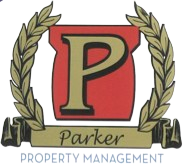If you own properties or are considering investing in real estate, you’ve likely come across the term “property management company.” But what exactly does a property management company do, and how can it benefit property owners and tenants alike? This blog post will delve into the various roles and responsibilities of property management companies and highlight their importance in the real estate industry.
Tenant Acquisition and Screening
One of the primary responsibilities of a property management company is to handle the tenant acquisition process. This includes marketing the property, conducting showings, and managing applications. A critical aspect of this process is tenant screening, which involves background checks, credit checks, employment verification, and rental history analysis. The goal is to find reliable, responsible tenants who will pay rent on time and take care of the property.
Lease Administration
Once suitable tenants are found, the property management company prepares and administers lease agreements. They ensure that all lease terms comply with local laws and regulations, clearly outlining the rights and responsibilities of both the landlord and the tenant. This includes specifying rent amounts, payment due dates, security deposit requirements, and maintenance responsibilities.
Rent Collection
Property management companies are responsible for collecting rent from tenants and ensuring timely payments. They establish efficient payment systems, send reminders, and enforce late fees if necessary. In addition to rent collection, they manage the property’s finances by handling operating expenses, budgeting, and financial reporting. This ensures that property owners have a clear understanding of their investment’s performance and profitability.
Maintenance and Repairs
A significant part of property management involves maintaining the property and addressing repair issues. Property management companies conduct regular inspections to identify and resolve maintenance needs promptly. They have a network of reliable contractors and service providers to handle repairs efficiently. By ensuring that the property is well-maintained, they help preserve its value and keep tenants satisfied.
Tenant Relations and Conflict Resolution
Maintaining positive tenant relations is crucial for long-term rental success. Property management companies serve as the primary point of contact for tenants, addressing their concerns, answering questions, and handling complaints. They mediate conflicts between tenants and landlords, ensuring that issues are resolved fairly and professionally. Good tenant relations lead to higher tenant retention rates and a more stable rental income.
Legal Compliance and Risk Management
Navigating the legal complexities of property management can be challenging for individual property owners. Property management companies stay up-to-date with local, state, and federal laws and regulations related to rental properties. They ensure that lease agreements, eviction procedures, and property operations comply with these laws, reducing the risk of legal disputes. This expertise helps protect property owners from potential liabilities and legal issues.
Property Inspections and Reporting
Regular property inspections are essential to ensure that tenants are adhering to lease terms and that the property is being maintained properly. Property management companies conduct routine inspections and provide detailed reports to property owners. These reports include information on property conditions, maintenance needs, and any lease violations. This transparency allows property owners to stay informed about their investment.
Evictions and Lease Terminations
In unfortunate situations where eviction becomes necessary, property management companies handle the entire process. They follow legal procedures to ensure a smooth and lawful eviction, minimizing stress and financial loss for property owners. Additionally, they manage lease terminations, ensuring that move-out procedures are followed correctly, security deposits are handled appropriately, and the property is ready for new tenants.
Conclusion
Property management companies play a vital role in the real estate industry by taking on the responsibilities of managing rental properties. From tenant acquisition and screening to maintenance, financial management, and legal compliance, their comprehensive services provide significant value to property owners. By partnering with a property management company, property owners can enjoy the benefits of real estate investment without the stress and time-consuming tasks associated with property management. Ultimately, these companies help maximize rental income, maintain property value, and ensure a positive experience for both property owners and tenants.








